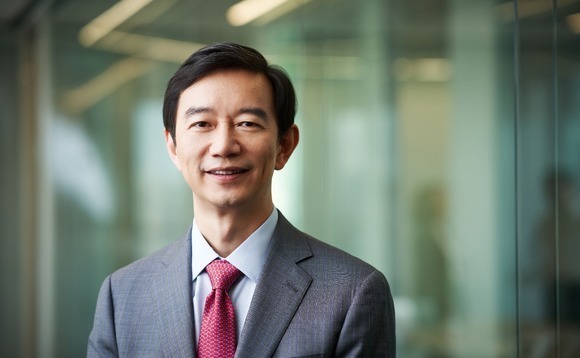
Fund focus: Lightspeed bets on green-tech

Green-tech is the latest big idea being championed by Lightspeed China Partners. It has inspired a change in the firm’s name and it will underpin deployment of the new $920 million fund
With regulatory uncertainty having slowed – or even halted – much China venture capital fundraising activity, Lightspeed China Partners seems to be the exception to the rule. The firm took just three months to close its fifth US dollar-denominated vehicle at $920 million, comfortably beating a target of $750 million.
It is Lightspeed's largest fundraising to date and takes total assets under management to $3 billion. Fund IV closed at $610 million in 2019.
"Although the fundraising was done entirely online, we have added a number of new LPs, including sovereign wealth funds, endowments, pension funds, and fund-of-funds," says James Mi (pictured), the firm's founding partner. With the fund sticking to its hard cap, AVCJ understands that many LPs didn't receive the full quotas they requested.
Much like the previous vintage, Fund V comprises two vehicles: Lightspeed China Partners V and Lightspeed China Partners Select II. Each is $460 million in size, which means an even split between early-stage and growth-stage deals. To date, 10 investments have either been finalized or term sheets have been delivered to start-ups.
Pressed on the reasons for strong LP support, Mi points to the firm's focus on deep tech, which is benefiting from policy tailwinds, while regulatory uncertainty lingers over consumer technology. But more important, in his view, is Lightspeed's recognized ability to spot significant trends just as they are emerging.
"Before others recognize the value, we have already deployed," Mi says. "In the internet economy, we participated in early rounds for Meituan and Pinduoduo. We started investing in enterprise services 10 years ago and deep tech eight years ago."
The next big trend is green-tech, and Lightspeed has rebranded its Chinese brand accordingly. The firm is now called Lightspeed Photosynthesis in Chinese (though its English name is unchanged), reflecting both the new focus and a desire to convert light into heat – metaphorically speaking – that can drive China's innovation ecosystem and make positive impacts for the society.
Last year, policymakers unveiled the "dual-carbon" goal of reaching peak carbon consumption by 2030 and achieving carbon neutrality by 2060. The clock started in 2021. Consequently, there has been a surge in cleantech or carbon reduction investment as well as in thematic fundraising. Large "carbon neutral" funds have been launched by the likes of CICC Capital and Sequoia Capital China.
Mi refers to the boom green-tech, rather than cleantech, to distinguish it from an earlier epiphany in 2000-2010. Last time around, renewable energy subsidies were in full force – at home and overseas – and capital went into solar panels and wind turbines. Those subsidies are no longer required because technology-enabled progress has made solar cheaper than conventional energy.
Lightspeed China entered the space four years ago, investing in new energy commercial vehicle manufacturer Newrizon, electric boat motor maker ePropulsion, synthetic biology specialist Bluepha, hydrogen fuel cell energy component providers Tang Feng and Shijia Toubo, and silicon carbide chip producer Zhanxin.
"Climate change is one of the two major challenges for the entire world," Mi says, adding that the other is inequality. "No single country can conquer it alone; it requires global cooperation."
"Everyone is looking for technological solutions and Chinese companies have a leading position in battery and solar technology. Many of the green-tech companies we have invested in are not only leaders in China, but also top players globally with significant revenues outside China."
Next-generation battery technology, new battery materials, and alternative protein like plant-based meats are all on Lightspeed's agenda. So is hydrogen energy as a transportation solution, although the infrastructure for production, transportation, and charging is still lacking. Mi believes it will become essential in the future, noting that large trucks cannot run on lithium batteries – they would need too many of them.
Latest News
Asian GPs slow implementation of ESG policies - survey
Asia-based private equity firms are assigning more dedicated resources to environment, social, and governance (ESG) programmes, but policy changes have slowed in the past 12 months, in part due to concerns raised internally and by LPs, according to a...
Singapore fintech start-up LXA gets $10m seed round
New Enterprise Associates (NEA) has led a USD 10m seed round for Singapore’s LXA, a financial technology start-up launched by a former Asia senior executive at The Blackstone Group.
India's InCred announces $60m round, claims unicorn status
Indian non-bank lender InCred Financial Services said it has received INR 5bn (USD 60m) at a valuation of at least USD 1bn from unnamed investors including “a global private equity fund.”
Insight leads $50m round for Australia's Roller
Insight Partners has led a USD 50m round for Australia’s Roller, a venue management software provider specializing in family fun parks.








